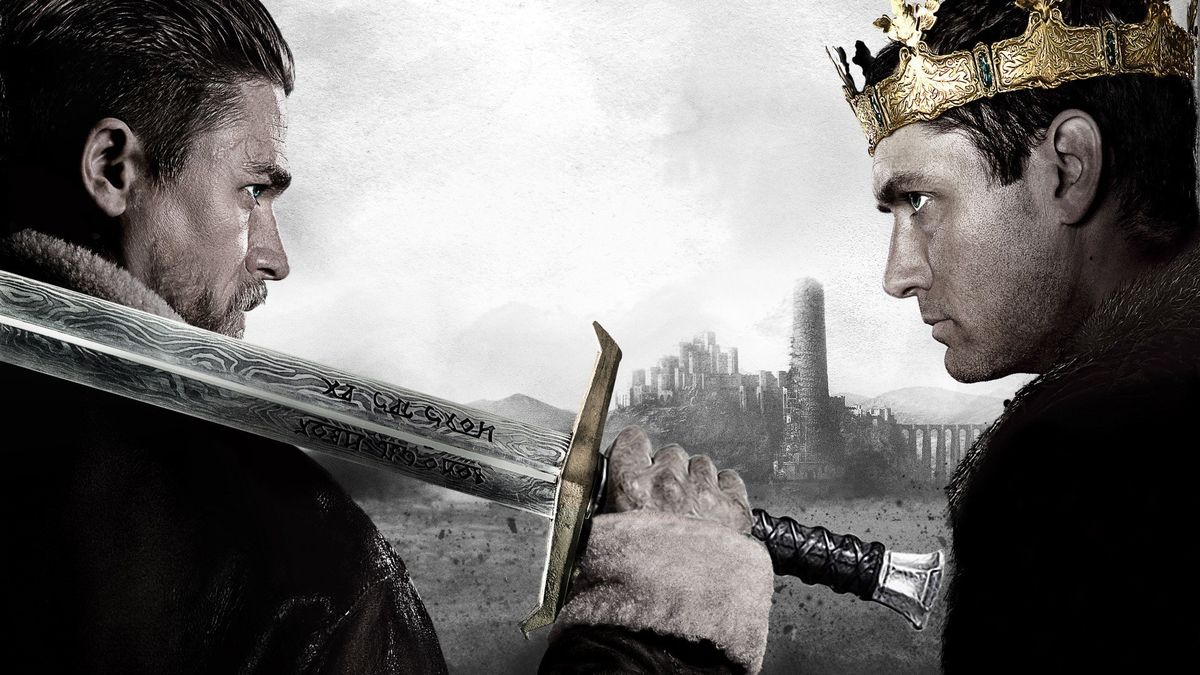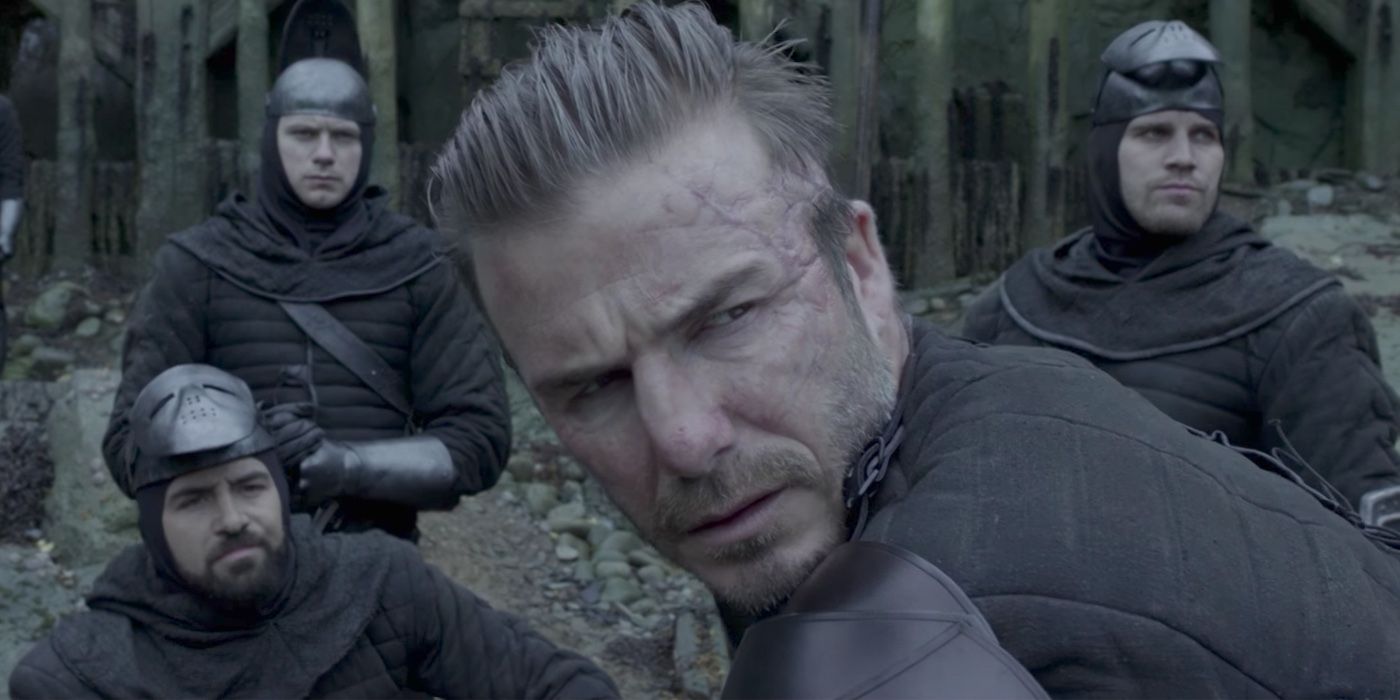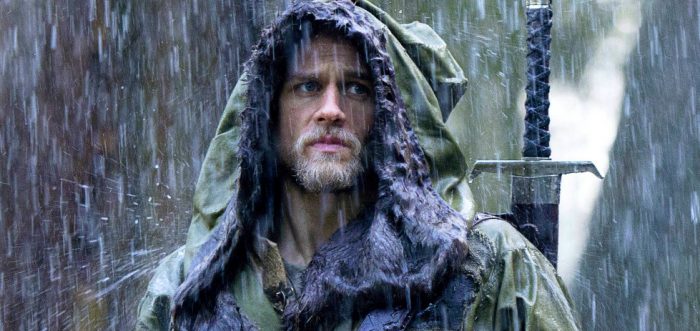“From brothel brawler to blade-born king, he’ll rise from the streets to seize the sword—and the throne.”
Steel flashes. Drums pound. And destiny rises from the grime of back-alley brawls. In “King Arthur: Legend of the Sword” (2017), director Guy Ritchie hurls the classic legend into a kinetic whirlwind of swords, swagger, and pounding beats, crafting a Camelot no history book ever imagined.
Here, Arthur (Charlie Hunnam) isn’t raised in royal halls but in the filth and hustle of Londinium’s streets. A streetwise hustler and bare-knuckle fighter, he knows the weight of coin, the taste of blood, and the code of loyalty among thieves. But when he pulls the sword Excalibur from the stone, his life flips from the shadows of brothels and back alleys to the blinding light of prophecy.

Opposite him stands the villainous Vortigern (Jude Law) — a ruthless usurper whose lust for power drips with dark magic. Law slithers across the screen, a king who will sacrifice anything, anyone, to keep his throne. His scenes crackle with tension, his eyes alight with calculated menace.
Ritchie unleashes his trademark storytelling: rapid-fire dialogue, whip-crack edits, and musical flourishes that feel more like a London gangster flick than a medieval epic. Yet it’s this modern, electric touch that makes the tale sing anew. Chases rip through medieval streets in frantic cuts. Magic pulses in slow-motion visuals. Excalibur’s power radiates in blue-white surges, slowing time as Arthur carves through armies like a human hurricane.

Visually, the film is an assault of texture and scale. Shadow-drenched streets open into sweeping vistas of war elephants, flame-lit battlements, and the colossal fortress of Camelot rising like a dark crown against the sky. Composer Daniel Pemberton fuels it all with a pounding, percussion-heavy score, mixing primal chants and howling strings into a soundscape that thrums like Excalibur itself.
Yet beneath the spectacle, “Legend of the Sword” is a story of reluctant heroism. Arthur is no noble knight; he’s a man forged by loss, betrayal, and survival. His journey isn’t about claiming destiny—it’s about choosing to bear its weight.

By its final, explosive duel—Excalibur blazing like lightning against Vortigern’s dark sorcery—the film reminds us that legends are born in the mud as much as the marble halls of kings.
It’s wild. It’s modern. And it’s Arthur as you’ve never seen him.
-1751429079-q80.webp)

-1752553826-q80.webp)
